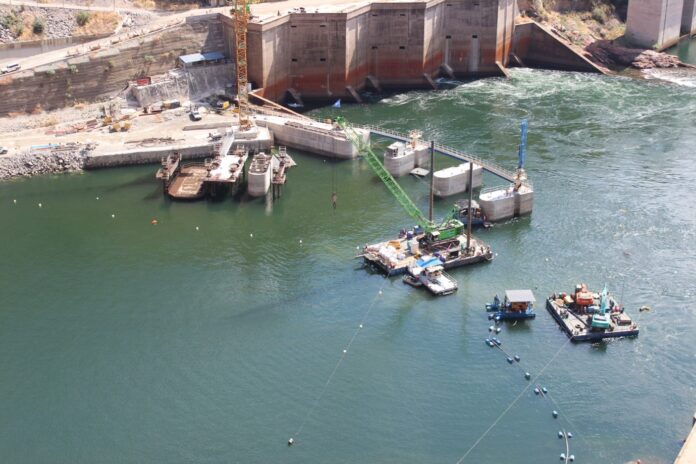
Tadiwa Musiyiwa
The Zambezi River Authority has started the process towards assessing the performance of the Zambezi Valley Development Fund on the Kariba Dam Rehabilitation Project and how it can benefit communities near the project.
The authority is currently in the process of engaging a consultancy firm for the programme.
According to ZRA, the project will be funded through funds received from the African Development Bank, the Swedish Government and the Worlds Bank’s International Development Associations (IDA).
“The Authority received funds and intends to apply part of the proceeds for the employment of consultancy services for the Zambezi Valley Development Fund Performance Assessment,” the authority said.
The ZRA has also invited eligible consulting firms with specific experience to indicate their interest in providing the required services.
“Interested consultants should provide information demonstrating that they have the required qualifications and relevant experience to perform the services.”
Through the consulting services, the authority plans to assess progress in the ZVDF performance towards achieving its mandated outcomes among displaced communities over the operational period.
It also intends to assess the extent to which the ZVDF has given attention to addressing specific beneficiary community needs and establish whether ZVDF is still the suitable channel to respond to ongoing concerns of the displaced communities.
If not, the Consultant should propose reasonable options for the Board of Trustees to consider in making ZVDF more responsive to current and emerging needs for benefits among the displaced communities.
Additionally, the consultant is expected to review current practices employed and constraints faced by ZVDF in engaging displaced communities, stakeholders, including local government in the identification and implementation of community projects.
“The consultant shall establish efficiencies with ZVDF and identify bottlenecks, if any that may be negatively affecting the smooth operation of ZVDF.
“Consultant should highlight what additional support (technical or financial) can be rendered to address highlighted challenges and what strategies the Authority should employ to ensure additional resources are raised internally, and/or through external sources.”
It is also expected that the consultant establishes opportunities for optimizing current work through structural improvements and changes and indicate in detail proposed changes in structure while stating financial implications, requisite skills needed among other requirements.
The scope for consulting services also includes conducting an analysis of how ZVDF engages with respective stakeholders and how this impacts the delivery of community projects and determine if this aspect requires strengthening through strategies they will recommend.
The consultant will further carry out an analysis of how ZVDF can leverage existing CSR programmes of contactors engaged by ZRA for current and future projects, while establishing a criterion for considering a company’s CSR track record as a point of consideration for bidding on a project.
Establishing strategies that could be devised to ensure contractors are responsive to their corporate commitments as a means for supplementing ZVDF efforts in improving the welfare of displaced communities is also key.
“The consultant shall establish the ratio between population of beneficiary communities in Siavonga and Kariba combined and that of the population of the beneficiary communities in the other eight districts.”
ZRA said the assignment is likely to start in November 2021 and is expected to be implemented over two and a half months.
This will be done in accordance with the Quality and Cost Based Selection method set out in World Bank’s guidelines.
Consultants may associate with other firms in the form of a joint venture or a sub-consultancy to enhance their qualification.
The fund was set up to finance the implementation of sustainable infrastructural and developmental projects meant to alleviate the impact of the displacement of the Tonga or KoreKore people on both sides of the Zambezi River in Zambia and Zimbabwe.
Over the years, ZVDF has funded various infrastructural and developmental projects which include the procurement and installation of grinding mills, construction of schools and houses as well as the construction of clinics and houses for support staff in respective project sites.











